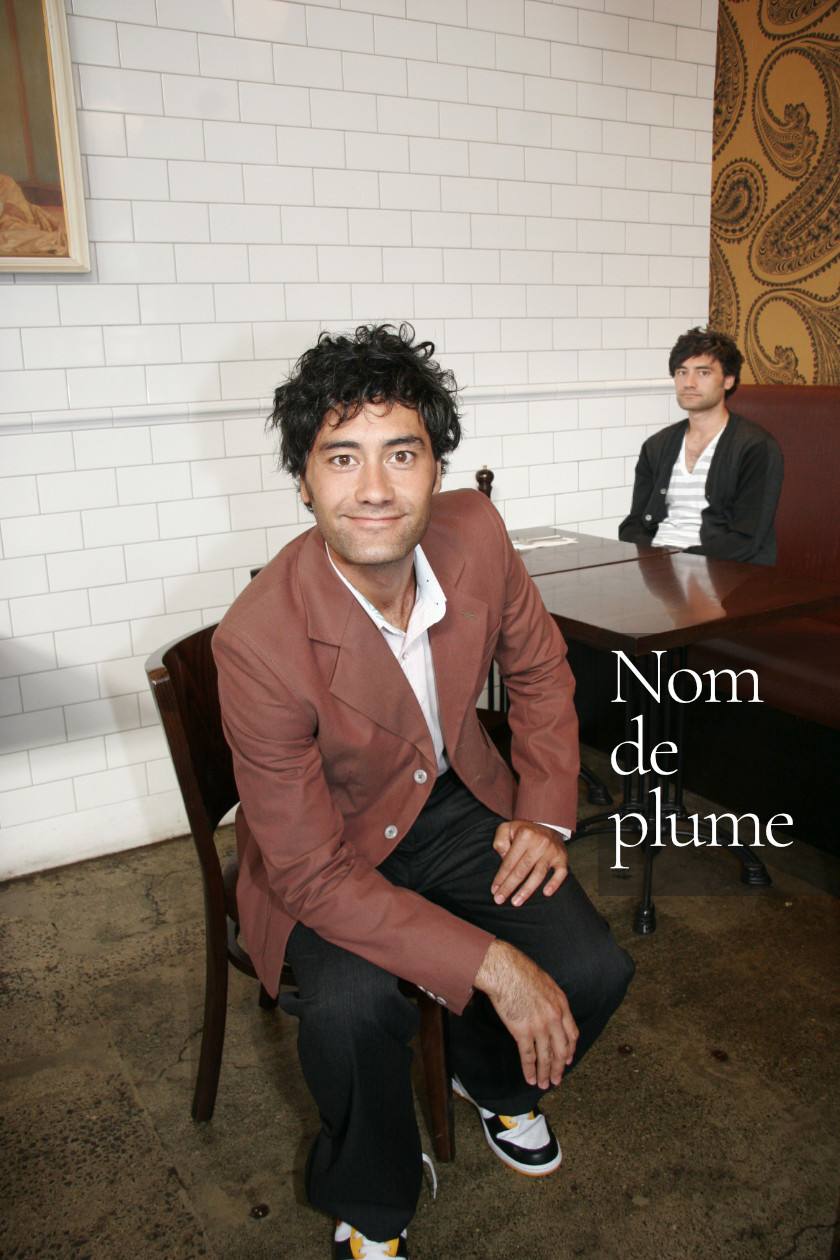
Nom de plume Taika Waititi wears Mister Menswear, supplied by Marvel Menswear. Photographed at Floridita’s
As we celebrate our 20th anniversary in 2017, we take a first look back in our archives. In July 2007, Sylvia Giles interviewed Taika Waititi, the then-up-and-coming film director. These days, of course, Waititi has directing credits such as Boy, What We Do in the Shadows, Hunt for the Wilderpeople, and he’s making it big with Thor: Ragnorok. Ten years ago, as is often the case with Lucire, we sensed he’d be the next big thing—and the Taika Waititi that many of us know today can be seen presciently described in Giles’s words
Photographed by Emma Käthe Anderson
Hair and make-up by Vanilla
From issue 25 of Lucire
Sylvia Giles is a former contributor to Lucire.
Taika Waititi, a.k.a. Taika Cohen, has been a prominent feature on the Wellington landscape for a number of years. The two identities have been easy to identify—Cohen, the actor; Waititi, visual artist. But his new role of film director not only suits him, it creates a dialogue between the aspects of one very multifaceted individual.
Taika Waititi, film director, visual artist
You get the feeling Taika’s time is being monopolized by his Waititi persona at present. Currently riding the crest of the Eagle Versus Shark wave, he has gathered momentum as a director since his short films Two Cars, One Night and Tama Tu. ‘Film is the perfect combination of all my interests. Storytelling, visual art, music, everything.’
The difference in going from short film to feature involves an exponential growth of budget, time, stress and expectation. ‘It was a huge jump. Having a lower budget gives you more creative freedom, and when it comes out there’s more of a chance it will make its money back. You are talking about millions of dollars of other people’s money though; you don’t have as much creative freedom as you do with a short film. They are completely different mediums really, like a short story and a novel. For me the biggest concern was not knowing I could make the transition, because there are so much brilliant short story writers that make terrible novels.’
Eagle Versus Shark has been compared to Napoleon Dynamite, but if you are in fact paying attention, the characters are far more developed. They are both rooted in a similar æsthetic, but there the resemblance dwindles. Napoleon Dynamite was great for one-liners, the kind of film, if you hesitated in seeing, you had heard about in full from you friends. Eagle Versus Shark sparked discussions about more than ‘delicious bass’. The main protagonist, Jarrod (played by Jemaine Clement), is an abrasive antihero. When it comes to the question of redemption for Jarrod, Waititi does something that is incredibly hard to do—polarize people’s opinions, so that they are split a dead even 50–50.
The art direction is superb. The combat video game takes place outside a marae, and there are several parodies of brands. The animation has a delightful Michael Gondray feel, and the metaphors are simple yet meaningful, all strung together with clarity. The narrative takes risks; there is a lot about the film that deals with insecurity and isolation.
The subtext behind Taika’s relationship with Waititi, as he does the media circuit for the promotion of the film, is that with success comes the burden of insecurity. It is difficult to tell what Waititi thinks of the film and, when it reached the light of day, whether he felt he was still in the driver’s seat. With big money comes less creative control, particular for the Cuban-variety artist with nothing to lose and no higher authority other than the street.
Putting this in context, Taika Waititi held an exhibition in his younger days where he had used both New Zealand and US notes for the basis of his art. Someone reported the ‘defacement of legal tender’, which is why its images are almost impossible to find. While comparatively, the loss of a $20 note when you are a beneficiary living in New Zealand’s most expensive city is huge, taking risks has always been a motif of his work.
While Eagle Versus Shark got a somewhat mixed reception in reviews, it is an incredibly successful film on a number of levels. Few New Zealand films deal with the popular themes of national insecurity and bad communication this poignantly, but also this light-heartedly.
While there may be an undercurrent pulling the artist out to sea against a media tidal wave, now that he has staked out his territory as a multi-dimensional director, you can feel him itching to get on to the next thing.
As with Two Cars, One Night, the visual artist in him seems to love putting together each frame. This sense of artistry is not lost over the new timeframe allowed by a feature. For Waititi, the next feature will be an exploration of the short film Two Cars, One Night, while not so much being a direct adaptation.
‘Yeah, that is the next project; it’s not set in a car park or anything. But it’s set in the adult world, in the ’80s really. Growing up in it. Aspects of my own childhood, but more just growing up in country life. How you pass time.’
Taika Cohen
Taika notes that Taika Cohen just makes life difficult for the people booking flights for him. But Taika Cohen is the actor, comedian, and the joker in front of the camera.
‘I haven’t had a proper job since 1996. I’ve only ever really been doing creative stuff since then. And even now I am only just surviving on whatever I can get. But I am very, very happy with that existence—as long as there are different mediums that I can use as outlets. I don’t think I could ever just stick with one thing. I’m very happy that I get to experiment and amongst them that I get taken seriously enough.’
I quip about potential commitment issues and he laughs and agrees. Except people with commitment issues end up never doing anything, and Taika has achieved the kind of well-rounded portfolio that at cannot be typecast or pigeonholed. And as with art and with performance, there is a New Zealand male sensibility that is very observant, perhaps what makes his commentary on the world so entertaining.
He describes his usual approach to the Q&A sessions surrounding the film. He admits to frequently skewing the conversation towards the issues he cares about. ‘I’m really against the sale of New Zealand. Whenever I am in the States people say, “I’ve always wanted to move to New Zealand,” and I tell them they aren’t allowed. “We don’t want you.”’
So if Taika Waititi was running for president? ‘I’d be totally left. I wouldn’t be radical … the left gets such a hard time but now the left isn’t even left anymore. Labour has totally let me down. I was so bummed out. All these Greens’ supporters said, “Go, let’s help out Labour,” and the next thing you know it has totally fallen through.’
We take a tiki-tour of recent New Zealand politics, and end up talking about the foreshore and seabed issue. ‘The media totally screwed that. In the Herald [the headline read], “What Māori want”, in big letters, and then [beneath was a] photo of Auckland CBD! And then a picture of Wellington. It’s so ridiculous that it doesn’t help anybody. The media screwed everyone around with that, and am I’m sure nobody really knows the exact story.
‘Sometimes you can look at New Zealand and go, “Wow, we aren’t that different from the States in some ways.”’
I ask if he found a different motivation when performing. ‘Yes, I think so. I don’t feel as though there is as much invested when I’m performing. Directing is highly pressured, you have a lot riding on it, not only in terms of reputation, but money. And if you screw it up it’s really hard to get another opportunity. You can’t really pass the buck, it just doesn’t work.’
I imagine another reason why the multiple creative hats fit so well is that while you trade on your opinion, it provides the opportunity to stop, change tack, change your mind, grow and evolve. ‘I see a lot of people even younger than me who are just so over-mature. So pompous. Whatever happened to fun? And insecurity? It’s hard to be a grown-up all the time. And that’s why I like watching children, and see them make something from nothing at all. That’s what really drives me. In that way, Taika Cohen and Taika Waititi and really linked.’ •
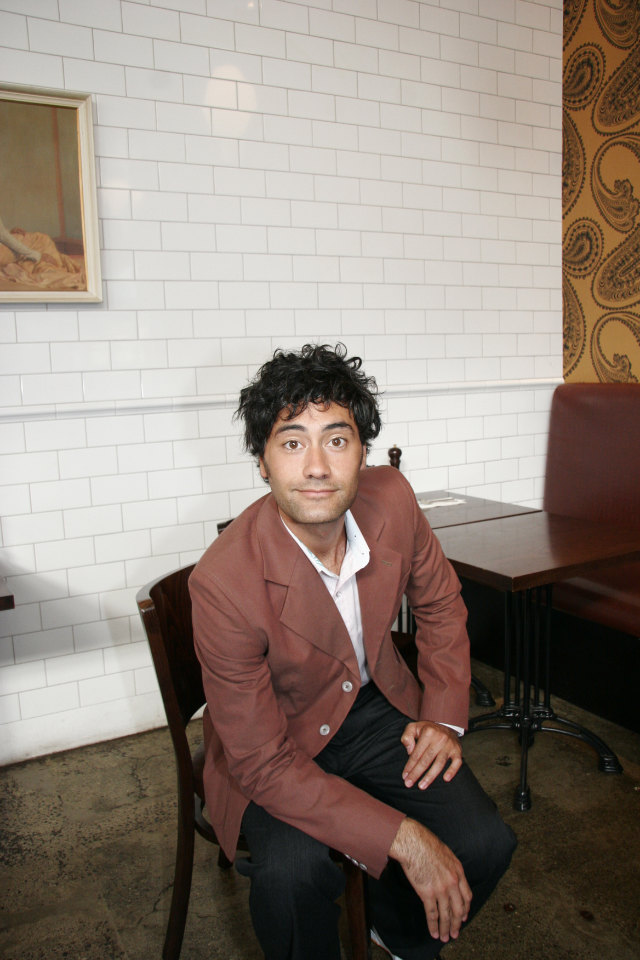
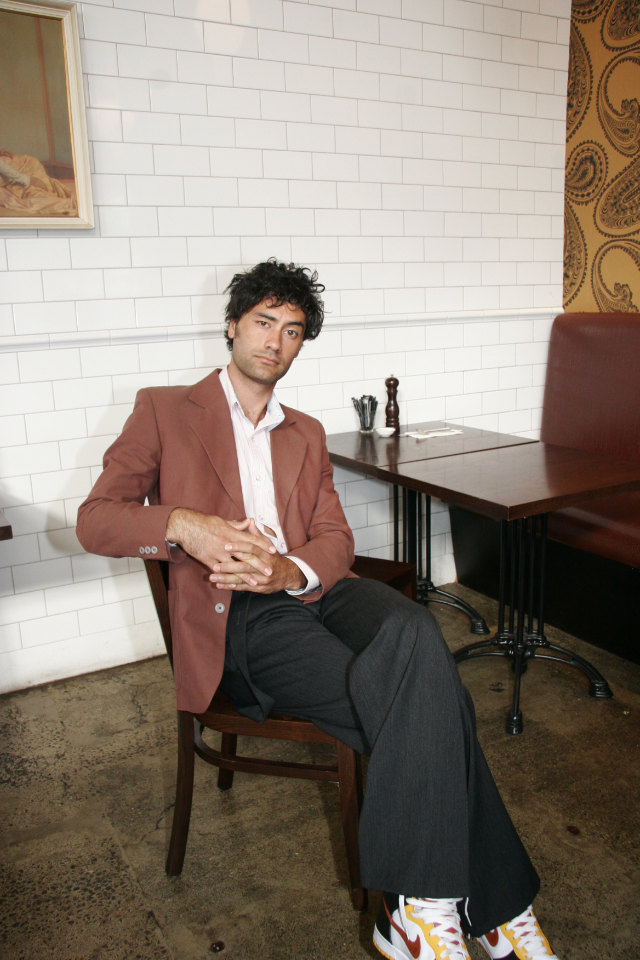
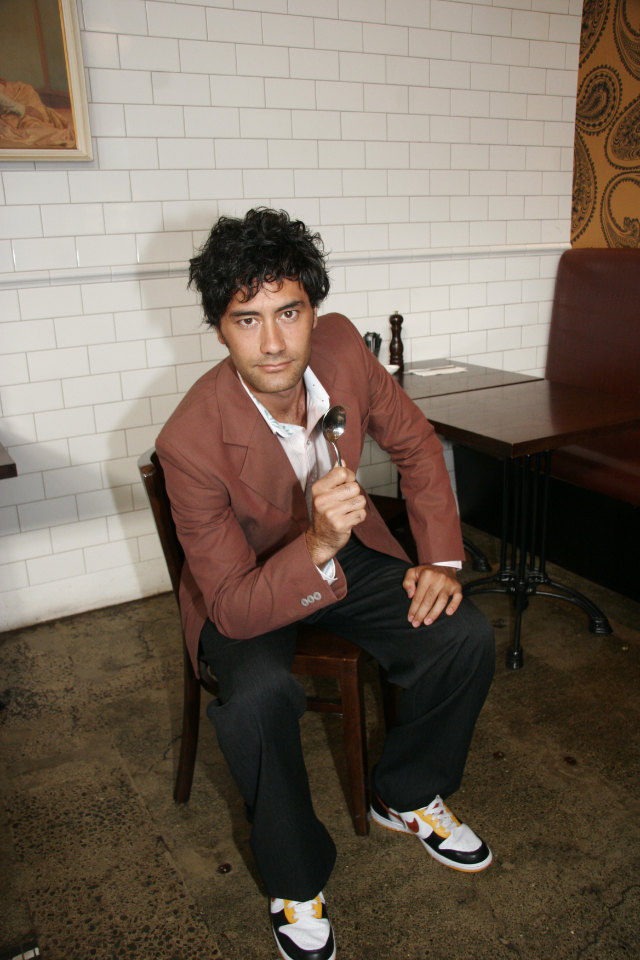
Related articles hand-picked by our editors
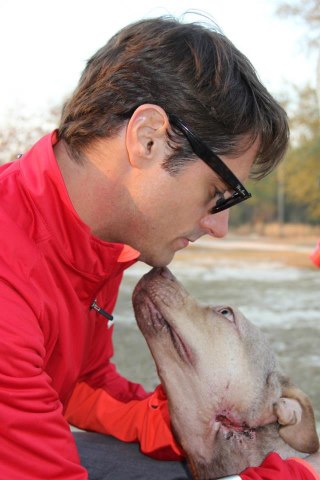 A prince among animals—and humankind
A prince among animals—and humankind
Italian-born, American-bred prince Lorenzo Borghese uses his clout to rescue and protect man’s best friend. Elyse Glickman speaks with him
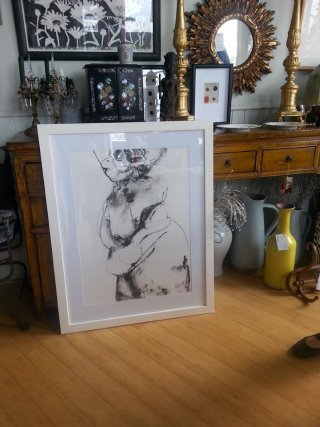 The art of Joanne Gair
The art of Joanne Gair
Janie Duneas looks at a different side to Joanne Gair, internationally known and sought after for her make-up and body-painting work, on the eve of an exhibition opening of her paintings at Blikfang in Auckland
 Phil Stern: from shadows to enlightenment
Phil Stern: from shadows to enlightenment
The renowned photographer celebrates his 95th birthday and career with the opening of a permanent exhibition at the Veterans’ Home of California. Elyse Glickman reports
photographed by the author
Advertisement
Copyright ©1997–2022 by JY&A Media, part of Jack Yan & Associates. All rights reserved. JY&A terms and conditions and privacy policy apply to viewing this site. All prices in US dollars except where indicated. Contact us here.